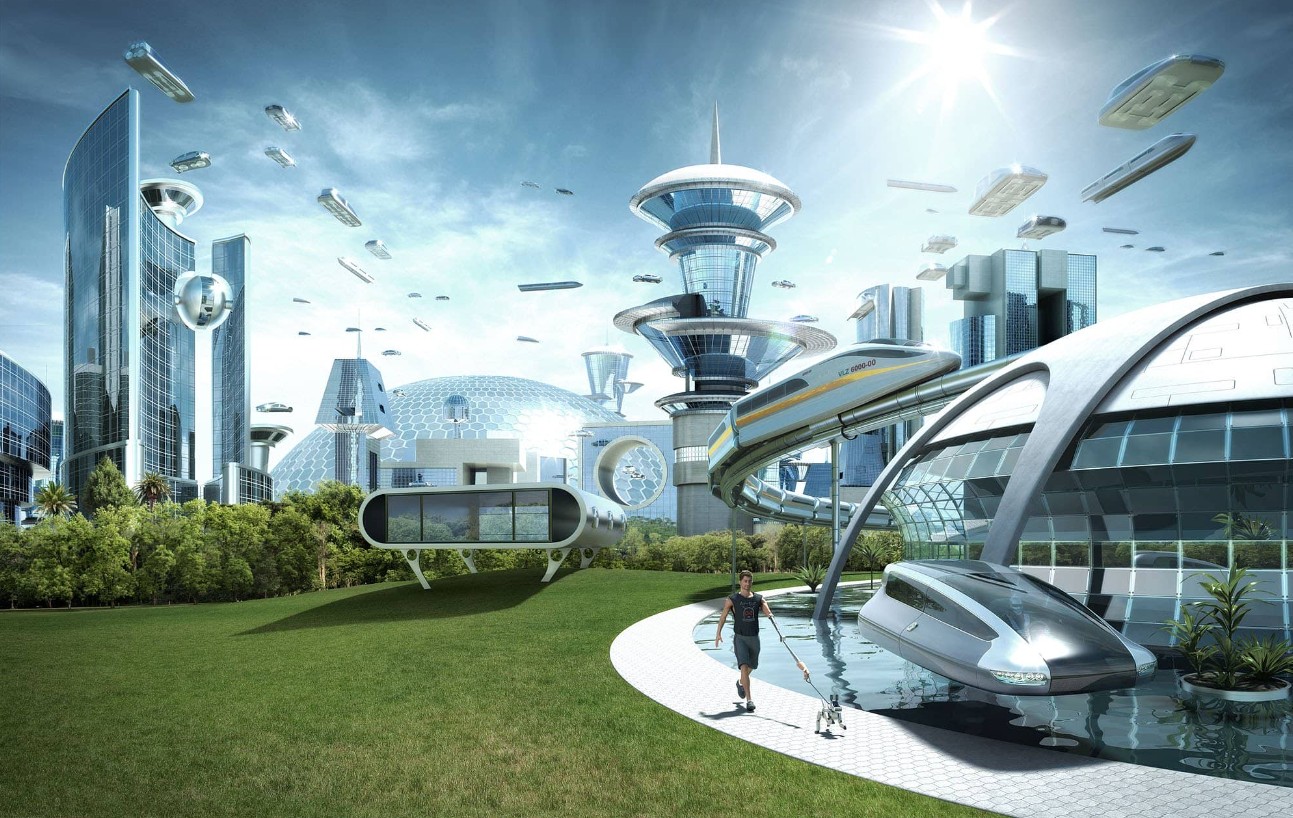Technology continues to revolutionize the way we live, work, and interact with the world. Over the past few decades, rapid advancements have transformed industries and redefined societal norms. From artificial intelligence to renewable energy, the future of technology promises even more groundbreaking innovations that will shape our world in profound ways. In this article, we explore some of the most exciting technological developments on the horizon and their potential impact on our lives.
1. Artificial Intelligence and Machine Learning
Artificial intelligence (AI) is at the forefront of technological innovation. AI-powered systems are already transforming industries like healthcare, finance, and transportation by automating processes, analyzing vast amounts of data, and delivering personalized experiences.
In the future, AI is expected to become even more advanced, with the development of general AI that can perform tasks across various domains. Machine learning algorithms will enhance everything from autonomous vehicles to predictive analytics in medicine, potentially revolutionizing disease detection and treatment. However, with these advancements comes the need for ethical frameworks to ensure responsible AI use and address concerns around privacy and job displacement.
2. Quantum Computing
Quantum computing has the potential to solve complex problems that are beyond the capabilities of classical computers. By leveraging the principles of quantum mechanics, quantum computers can process information at unprecedented speeds, enabling breakthroughs in areas like cryptography, materials science, and drug discovery.
In the coming years, industries could harness quantum computing to optimize supply chains, model climate change scenarios, and design more efficient renewable energy systems. While the technology is still in its early stages, companies and governments around the world are investing heavily in its development, positioning it as a game-changer for science and technology.
3. Renewable Energy and Sustainable Tech
As climate change continues to be a global concern, advancements in renewable energy technologies are critical. Solar and wind energy are becoming more efficient and cost-effective, while innovations like energy storage solutions and smart grids are improving the reliability of renewable power sources.
Emerging technologies such as perovskite solar cells, hydrogen fuel cells, and carbon capture systems could further accelerate the transition to a sustainable energy future. Additionally, the development of sustainable materials and circular economy practices will play a vital role in reducing waste and minimizing environmental impact.
4. The Internet of Things (IoT) and Smart Cities
The Internet of Things (IoT) is transforming how we interact with our environments by connecting everyday devices to the internet. Smart homes equipped with IoT devices, such as thermostats, security systems, and appliances, are becoming increasingly common.
On a larger scale, IoT is enabling the development of smart cities, where interconnected systems optimize energy use, transportation, waste management, and public services. For example, smart traffic systems can reduce congestion and emissions, while IoT-enabled infrastructure can monitor and maintain city resources more efficiently. These advancements promise to improve urban living standards while addressing challenges like overpopulation and resource scarcity.
5. Biotechnology and Personalized Medicine
Biotechnology is poised to revolutionize healthcare by making treatments more precise and personalized. Advances in genomics, CRISPR gene editing, and synthetic biology are enabling scientists to better understand diseases at a molecular level and develop targeted therapies.
In the future, personalized medicine could become the norm, where treatments are tailored to an individual’s genetic makeup. This approach has the potential to improve outcomes for patients with chronic diseases, cancer, and rare genetic disorders. Additionally, advancements in regenerative medicine, such as lab-grown organs and tissue engineering, could address the global shortage of organ donors.
6. Space Exploration and Colonization
Humanity’s fascination with space exploration is driving technological innovations that could pave the way for colonizing other planets. Private companies like SpaceX, Blue Origin, and NASA are working on ambitious projects, from reusable rockets to missions aimed at establishing a human presence on Mars.
Advances in propulsion technology, space habitats, and resource extraction from asteroids could make space travel more accessible and sustainable. These developments not only expand our understanding of the universe but also hold potential solutions for Earth’s challenges, such as resource scarcity and overpopulation.
7. Blockchain and Decentralized Technologies
Blockchain technology, best known as the foundation for cryptocurrencies, is finding applications beyond finance. Its decentralized and secure nature makes it ideal for use in supply chain management, voting systems, identity verification, and intellectual property protection.
In the future, blockchain could enable more transparent and efficient systems across various sectors. For example, smart contracts could automate transactions and reduce reliance on intermediaries, while decentralized finance (DeFi) platforms may revolutionize how individuals access banking and financial services.
8. Extended Reality (XR): AR, VR, and MR
Extended reality (XR), which includes augmented reality (AR), virtual reality (VR), and mixed reality (MR), is transforming how we experience digital content. From gaming and entertainment to education and training, XR technologies are creating immersive experiences that blend the physical and digital worlds.
In the future, XR could play a significant role in remote work, allowing virtual collaboration and realistic simulations. For example, healthcare professionals could use AR to perform remote surgeries, while VR could provide immersive training environments for industries like aviation and engineering.
9. Autonomous Transportation
The development of self-driving cars, drones, and autonomous public transport systems is set to redefine mobility. Autonomous vehicles (AVs) promise to reduce traffic accidents, improve fuel efficiency, and provide greater accessibility for individuals who cannot drive.
Beyond cars, innovations in drone technology are enabling faster deliveries and enhanced logistics capabilities. In urban areas, autonomous transport systems, such as smart buses and trains, could alleviate congestion and reduce pollution, making cities more livable.
10. 3D Printing and Advanced Manufacturing
3D printing is revolutionizing manufacturing by enabling the production of complex and customized products with minimal waste. This technology is already being used to create everything from medical implants and prosthetics to aerospace components and sustainable housing.
Future advancements in 3D printing could allow for the creation of entire buildings, vehicles, and even food. Combined with automation and robotics, 3D printing is set to transform supply chains, making production faster, cheaper, and more sustainable.
Conclusion
The future of technology is both exciting and transformative, offering solutions to some of the world’s most pressing challenges. While these innovations hold immense potential, they also come with ethical, social, and environmental considerations that must be addressed. By embracing these advancements responsibly, we can shape a future where technology improves the quality of life, enhances sustainability, and fosters innovation across all sectors. As we move forward, the possibilities are limitless, and the opportunities to create a better world through technology are within our grasp.




